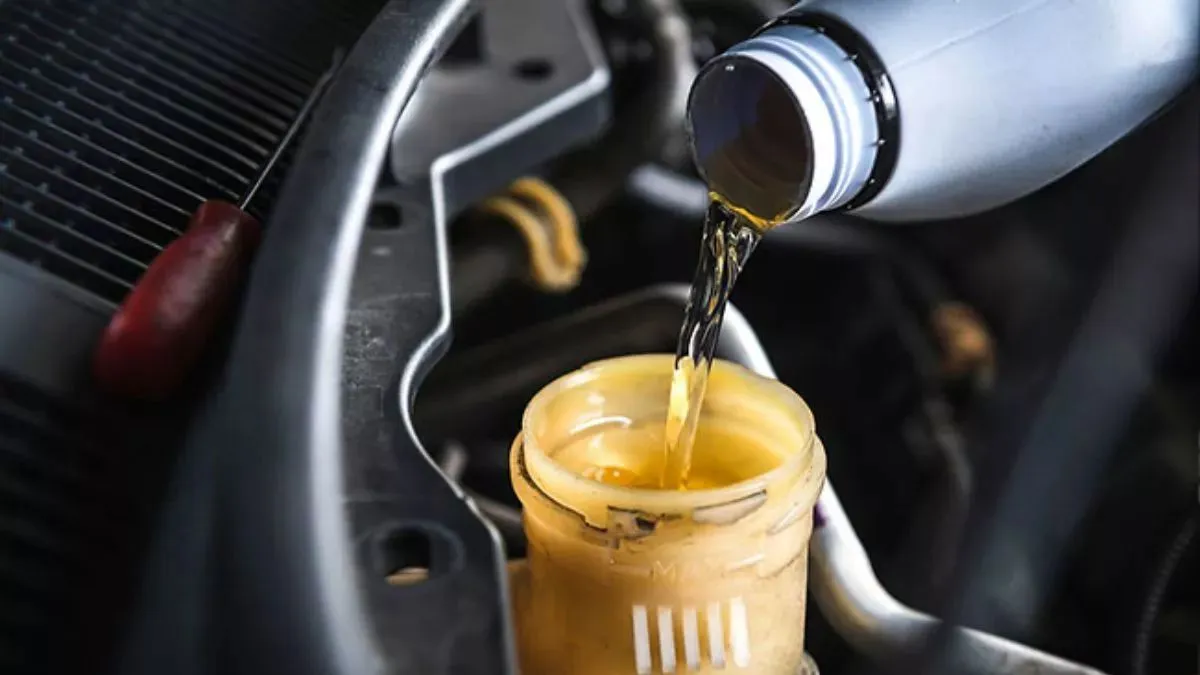- By Divanshi Sharma
- Mon, 24 Jun 2024 06:54 PM (IST)
- Source:JND
Brake oil plays a crucial role in the hydraulic brake and clutch systems of vehicles. It transfers the force you apply to the brake pedal into pressure, which then activates the front and rear brakes to stop the vehicle. This is possible because brake oil is incompressible, meaning it doesn't compress under pressure.
ALSO READ: BSA Gold Star 650 India Launch Set For August 15; Here's What To Expect From Upcoming Cruiser
For brake oil to function correctly, it needs to have certain properties and meet quality standards. One of the most important characteristics is a high boiling point. This prevents the oil from vaporising inside the brake lines, as vapour can compress, unlike liquid, and this would interfere with the hydraulic pressure needed for effective braking. If vapour forms in the brake lines, it can lead to brake failure.
How Brake Oil Works
Brake oil is essential for the efficiency of a car’s hydraulic brake system. If the oil levels are low, if the oil contains moisture, or if its flow is disrupted, it can negatively affect the car’s braking performance. Keeping the brake oil at the right level and in good condition is critical for safe driving.
When to Change Your Brake Oil
Like other vehicle oils such as coolant and oil, brake oil needs to be changed periodically. There isn't a specific standard interval for changing brake oil, but it’s important to watch for signs that it might need to be replaced. These signs include the ABS warning light coming on, problems with the brake pedal, unusual noises or strange smells when braking.
Regularly checking and replacing brake oil is essential for the safe operation of your vehicle. Make sure to include brake oil in your routine vehicle maintenance to ensure that your brakes work properly and to keep you and your passengers safe on the road.

